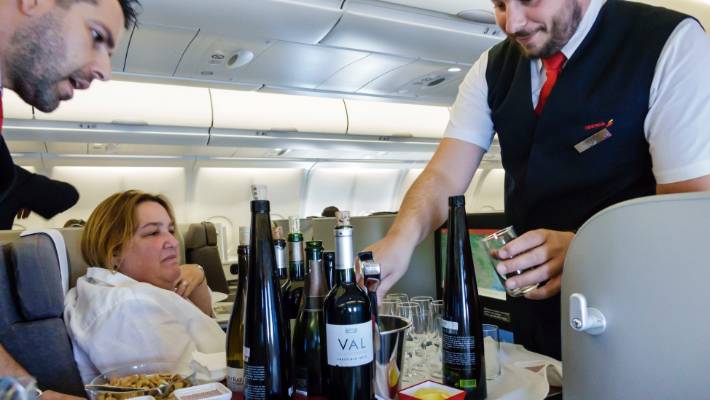For frequent fliers, it is no shocker that particular wine tastes horribly different once it’s left the ground. This is simply because, wine hates flying.
How? You wonder. Well, the vibrations of the plane, and the pressurized
According to online sources, when it comes to flying, the human body goes through a lot to account for the changes we experience in the air — high altitude, low humidity and reduced air pressure are just some of the things to consider.
Hydration is the key to keeping your palate sharp. Usually the palate starts to lose its sharpness after about 2-3 hours at altitude. Wines do not change at altitude… it is the human palate that perceives them to be different due to the re-cycling of the cabin air.
ALSO READ:GRA invades Kempinski and Mövenpick hotels over tax stamps
Dr. Herbert Stone, Sensory Consultant and co-founder of the Sensory Division at the Institute of Food Technologists, is a frequent flyer and says contributing external factors like air pressure affect the body’s ability to enjoy wine.
“Since the plane is pressured to about 5,000 feet, the air is very dry and the palate will be drier (compared to on the ground),” said Stone. “Our senses are not in the same condition on the ground. Our sensitivity is best when moist and with thinner and cooler air, the wine is more volatile, losing its aroma faster.”
To help, Stone recommends drinking water before and after drinking wine on the plane. “At high altitudes, the body will absorb alcohol faster,” said Stone. “Alcohol exaggerates its effects on the body so (drinking water) is a way of diluting the effect of the alcohol.”
Author: Davies Muli


